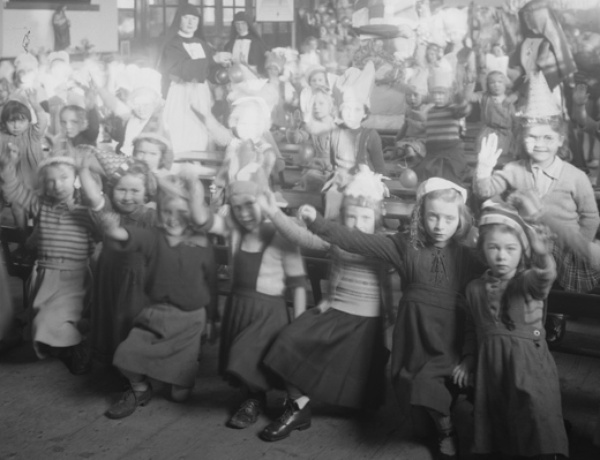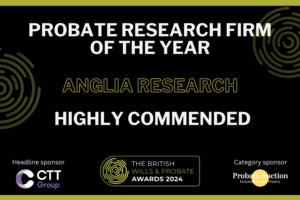A question of identity

In an era where we shred bank statements, juggle passwords and fret about identity theft, we look at the story of a man who willingly allowed his friend to borrow his identity and explains why this was not uncommon in twentieth-century Ireland.
Joseph Colin Hughes died intestate in London in the early years of this century. His death certificate gave his date and place of birth so we knew where to begin our research.
We discovered that Joseph Colin Hughes, born in a particular parish in County Mayo on a particular date, lived all his life in Ireland, married, had children and appeared to still be alive.
Meanwhile my Joseph Colin Hughes, born on the same day in the same place, had clearly come to the UK, married and left a similar trail of vital records – although in his case all his near kin had predeceased him when he died without leaving a will.
Given that there was only one birth record for both men, it seemed likely to be a case of assumed identity.
We tracked down the ‘real’ Joseph Hughes and arranged to visit him. He explained that the man whose history we were researching was called Brian Murphy.
Brian was illegitimate. He was brought up in a home until the age of about six, when he was unofficially adopted by a family who treated him differently from their other children. He went to school with Joseph Hughes and they became great friends.
Despite his difficult start in life, Brian did well. He never took the name of his adoptive family, so it was as Brian Murphy that he set off for England, looking for work. He eventually became an engineer.
Joseph Hughes told us, “About five years after he left County Mayo, he came back and knocked on my door.
“We had a long talk, and eventually – we were standing out in the field over there – he asked me if he could take my name. I said, yes he could. To this day I don’t know why.”
Mr Hughes felt compassion for his friend. But why? And why did Brian want to take someone else’s identity?
There are a number of reasons why identity ‘borrowing’, rather than theft, was not uncommon in twentieth-century Ireland. Bear in mind that for Irish Roman Catholics baptism was sacrosanct, while civil registration of birth was something introduced by the British government. Viewed by many as a secondary bureaucratic system, it was never strictly adhered to and heavy financial penalties for late registration only served as a further disincentive.
We now know that – certainly during the earlier part of the twentieth century – at least 15% of all Irish Roman Catholic births were never officially registered. Consequently, some people starting work in the UK in later decades were faced with a problem. Without documentation to prove their date of birth, how could they prove they were eligible to claim a pension, for example? Solution: borrow a birth certificate, and an identity, from someone back home.
Brian Murphy was born in a later period, and we ruled this out. So why did he take the step of changing his name to Joseph Colin Hughes by deed poll?
It comes down to two main hypotheses, either of which could be correct. What’s interesting is that both reveal something significant about the social context in which Brian found himself.
Firstly, he may have taken his friend’s identity so that he could cover up his illegitimacy when he later married. With recent revelations about mother and baby homes and Magdalene laundries, it’s easy to understand that he might have seen his illegitimacy as a stigma to be thrown off at any cost. Perhaps he assumed his friend’s identity simply to wipe the slate clean and put his unhappy childhood behind him.
The second possibility is that he wanted to avoid discrimination on the grounds of his nationality. Brian settled in London in the 1960s and was living there during The Troubles, a difficult time for Irish nationals in the UK. The name he chose to adopt has Welsh rather than Irish connotations, so it’s possible that he wanted to hide his Irish identity.
There was no evidence at all that Brian assumed his friend’s identity for any personal gain.
His story seems to be one about avoiding layer upon layer of discrimination. Perhaps what’s most striking is his obvious emotional attachment to the man who was his childhood friend. Joseph Hughes told me that when he agreed that Brian could take his name, Brian gave him a ring “to remember me by”.
(For reasons of confidentiality, names and other identifying features have been altered.)
2025 Anglia Research Services All Rights Reserved.
Anglia Research and Anglia Research Services are trading names of Anglia Research Services Limited, a company registered in England and Wales: no. 05405509
Marketing by Unity Online









